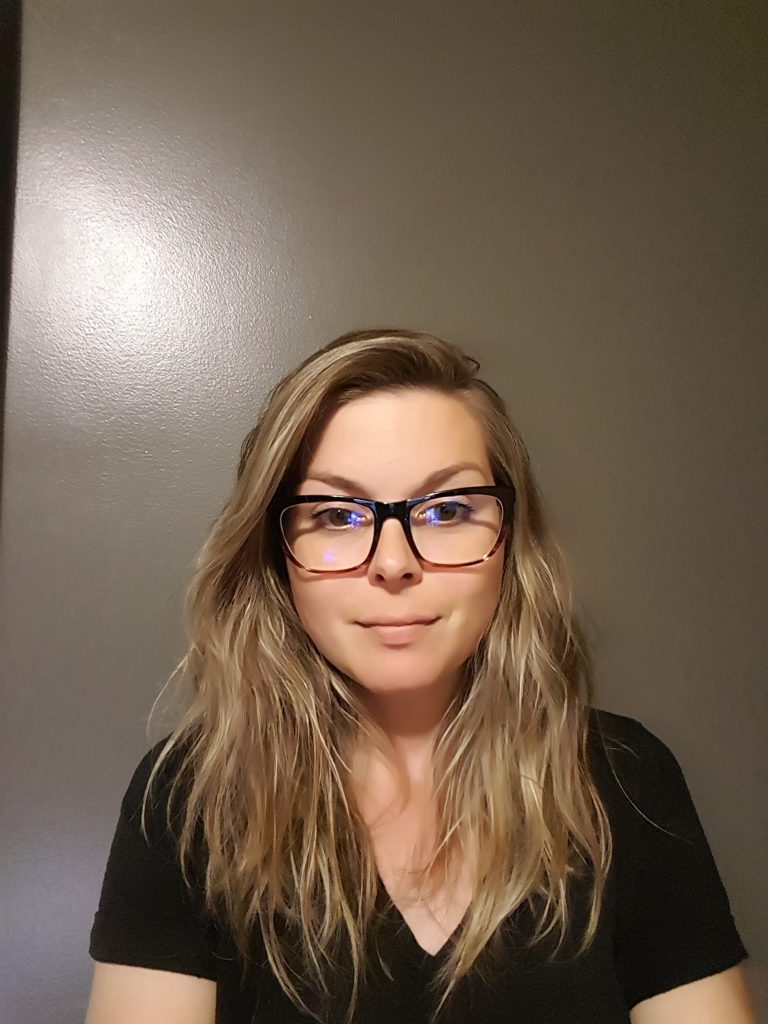In our effort to spread some positivity amidst the global pandemic, we turn to another success story of a proud RKC graduate – Meg Plooy. Meg graduated from the Online MA Leading Innovation & Change (the programme is now offered at York Business School as a 100% Online MBA Leading Innovation and Change). Let’s hear Meg’s inspirational story.
Who is..

A short profile
Vidhi Kapoor (VK): Who are you, really?
Meg Plooy (MP): Relentlessly helpful mother, wife, and friend. Innovative business solutions aficionado, Starbucks addict, camping nerd, and (foster) mother of Pitbulls.
Getting back into education
Your story of getting back to do a Master’s degree
VK: What was the driving force behind your enrolling for an online degree? Who inspired you? What motivated you?
MP: I was inspired to enroll for an online degree for a few different reasons. Firstly, to be an inspiration for my young children and show them that truly anything is possible if you work hard. Secondly, to advance my professional opportunities. Taking inspiration from my two sons, who work tremendously hard in everything they do and my sister, who enrolled in her graduate studies just a few weeks earlier.
VK: What were the thoughts/situations/people/challenges holding you back from starting (if any)? How did you overcome them?
MP: There were two significant barriers impacting my decision to apply and enroll. The primary barrier was time: finding adequate time while raising children and working full time. The other significant barrier was cost: as a mature student, enrolling in an international institution there were very few grants or bursaries I qualified for, meaning all the funding was out of pocket.
VK: What surprised you the most when you started your studies?
MP: I was most surprised by how determined I was to succeed.
VK: Do you feel there are unique challenges women face when deciding to get back into education?
MP: Absolutely. I feel there are still substantial gaps in gender parity. Although I have a supportive marital partner, I still feel that a larger portion of the parenting and household responsibilities fall on the female if both parents are working. I also feel that there is a larger need for females to have higher education for a lesser role in order to be seen competitively in the workforce and to reduce wage gaps.
Getting the degree
The work to get the degree – what did you learn, how did you balance, what would you do differently
VK: Which programme did you do? Why?
MP: Master of Arts, Leading Innovation and Change. I had been researching online Master’s degree programs for quite a while and immediately was drawn to this program because it outlined everything I identified in myself both personally and professionally.
VK: What is the single most important thing you learned during the programme?
MP: That I am capable of accomplishing anything I am determined to complete.
VK: How did you balance work and studies?
MP: A good routine and sticking to a schedule. The best time for me to complete my studies was after the kids were in bed, which gave me anywhere from 2 to 2.5 hours each night. I used Monday through Thursday as “school nights” which ensured I was still getting downtime over the weekends. This helped me to stay focused and manage time effectively.
VK: Any particular challenges to being a woman and studying online, or do you think all students face the same ones?
MP: I feel all mature students, especially ones with family responsibilities, would face the same challenges.
Life post-degree
What changed, if anything?
VK: What’s new in your life since graduating/starting your studies? Any visible impact already?
MP: I feel that since graduating, I have more credibility within the organization I work for.
VK: Anything you are doing differently now because of the things you learned?
MP: Completing my Master’s degree has helped me develop strong skills in critical analysis, which helps me assess a situation more critically, also identifying themes and patterns in certain situations. It has certainly helped me strengthen my professional writing and report-delivery skills.
VK: Do you feel that getting a Master’s degree or doing other online programmes can reduce gender discrimination in the workplace?
MP: I do not believe getting a Master’s degree will reduce gender discrimination in the workplace. I currently work in a male-dominated industry and was recently appointed to our central business unit’s Women’s Council as our organization is looking to achieve gender equity in the workplace. In the council, we discuss many elements that contribute to gender discrimination in the workplace. I believe the best way to mitigate gender discrimination in the workplace is through leadership and inclusive corporate culture.
Advice for other women
Or other students, really.
VK: Imagine you could send a message back in time to your pre-degree self: what would it be?
MP: It will all be worth it in the end, you CAN do this!
VK: Imagine you could send an object back in time to your pre-degree self: what would it be?
MP: A financial grant or bursary that could have helped with tuition payments.
Closing thoughts
VK: Anything else you would like to add that could help with the goal of increasing women’s participation/access to a Master’s degree?
MP: I believe addressing the financial barrier would assist in women accessing higher education. I also feel that developing a platform for online support would be beneficial that may include blog posts, online resources, and motivational content.
If you are truly inspired by Meg’s story today and are ready to take the plunge, do not think twice. It’s the right time to do something positive for your career (no matter the global crisis) and get a Master’s degree you had always dreamt of achieving! Have a look at our list of programmes and see if we have anything that interests you.